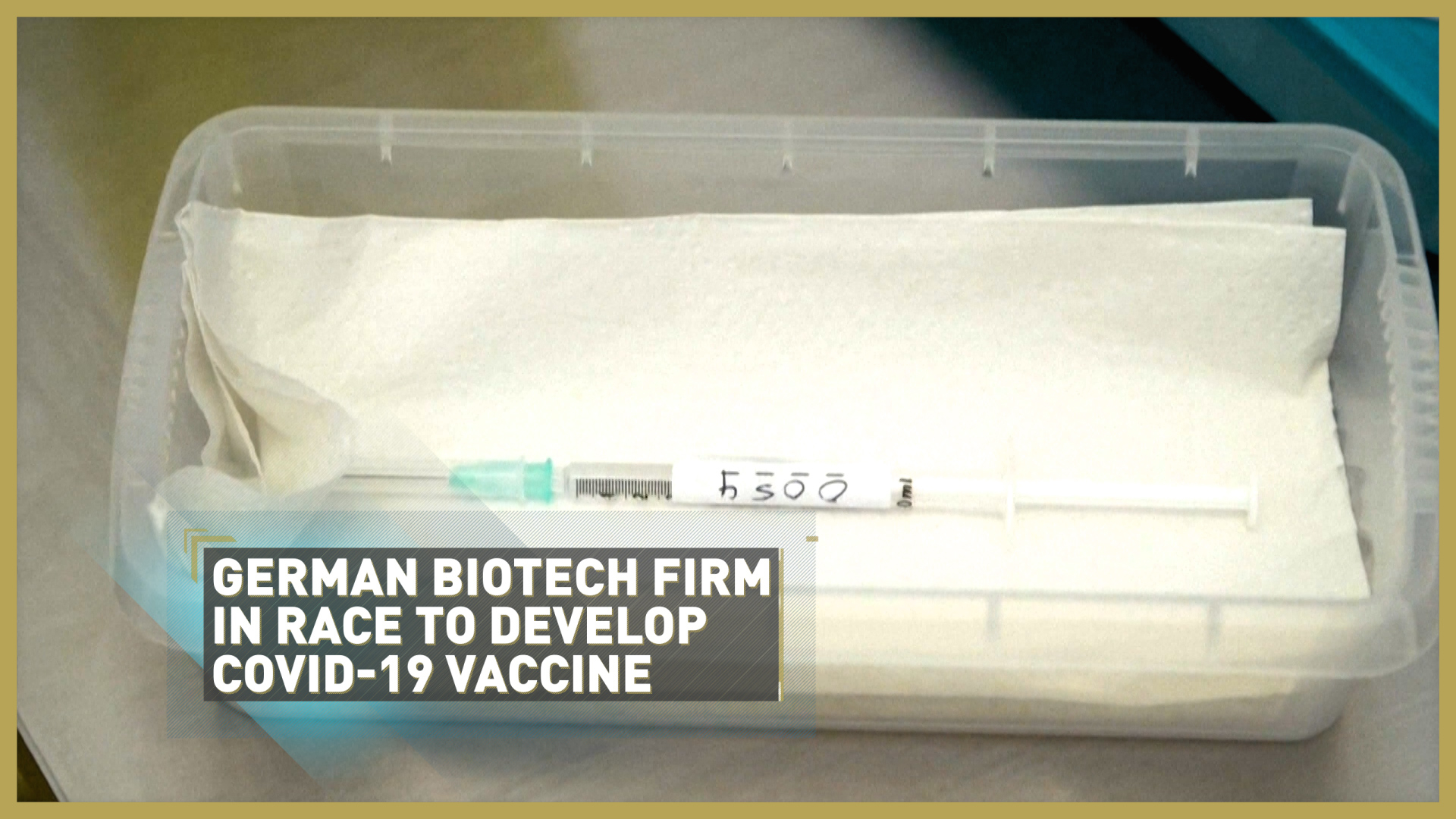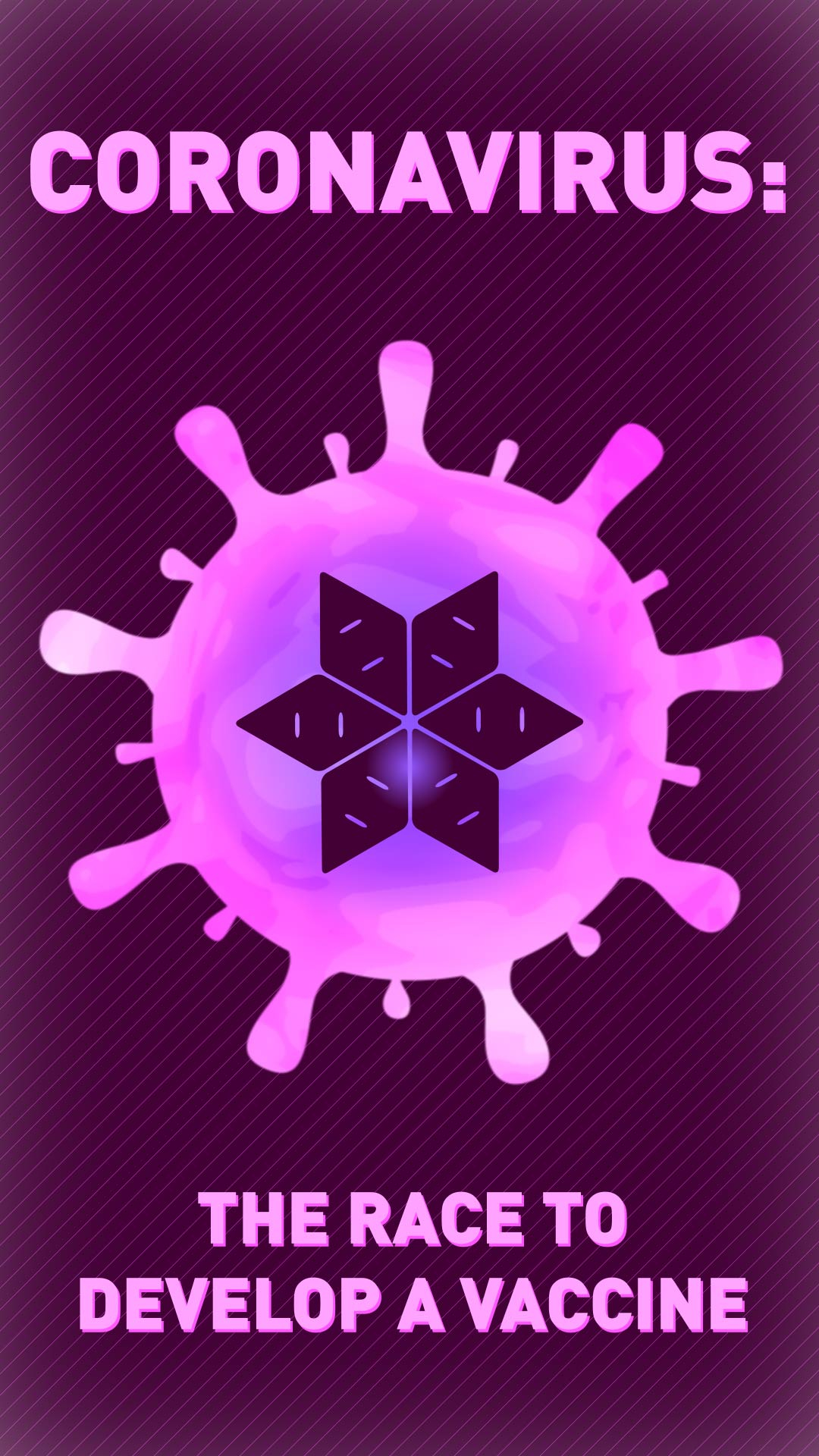
A healthcare worker conducts test for the coronavirus in Prague, Czechia. /AP /Petr David Josek
A healthcare worker conducts test for the coronavirus in Prague, Czechia. /AP /Petr David Josek
Volunteers in a trial at the University of Oxford are set to be given the first doses of a potential vaccine for COVID-19.
The team, based at the university's Jenner Institute, led by vaccinologist Sarah Gilbert, is one of only five worldwide participating in human trials, although there are now around 150 vaccine projects in development.
The trial will involve 510 volunteers aged between 18 and 55 in the first phase, which begins on 23 April. Gilbert has estimated it has around an 80 percent chance of being successful.
READ MORE: Antibody test 'available from next month', says Roche
The vaccine, named "ChAdOx1 nCoV-19," is developed from a chimpanzee virus, which is harmless to humans and has been genetically engineered to carry part of the coronavirus. This technique has been successful in the past, generating strong immune responses in other diseases.
Despite not knowing the outcome of the trial, the institute plans to develop one million doses of the potential vaccine to be prepared for quick distribution should it prove effective.
A research team led by Robin Shattock at Imperial College London has been conducting tests of its vaccine on animals since February and hopes to start clinical trials in June.
02:23

Germany, China and U.S.
The developments in the UK are closely matched by those elsewhere. On Wednesday, Germany approved human trials for vaccines developed by German biotech company BioNTech.
German vaccines regulator the Paul Ehrlich Institut (PEI) said the trial will be initially conducted on 200 healthy people, with more subjects, including those at higher risk from the disease, to be included in a second stage.
BioNTech's share price rocketed at the news and the company said it was developing four vaccine candidates under a program named BNT162 with its partner, pharma giant Pfizer.
Tests of the vaccine are also planned in the U.S. once regulatory approval for testing on humans has been secured there.
Following the approval, BioNTech CEO Ugur Sahin told a press conference tests would begin "at the end of April." Adding that the firm expected to have collected its first data by "the end of June or beginning of July."
READ MORE: Global virus warning gave countries time to react, says WHO chief
BioNTech, which awarded the rights in China to BNT162 to Shanghai Fosun Pharmaceutical under a March collaboration deal, is competing with Germany's CureVac and U.S. biotech firm Moderna in the race to develop messenger-RNA vaccines.
These molecules act as recipes that instruct human cells to produce antigen proteins, which allow the immune system to develop an arsenal against future coronavirus infections.
Speaking to CGTN, Sahin said: "The messenger-RNA is a genetic molecule. It allows you to provide the information of the virus.
"We take the information from some vital components and bring that with the messenger-RNA to the human body."
Moderna started testing its experimental vaccine on humans in March.
Two different experimental coronavirus vaccines were approved for human tests by China last week. A unit of Sinovac Biotech and the Wuhan Institute of Biological Products are developing these compounds.
In March, China approved another clinical trial for a vaccine candidate developed by the Academy of Military Medical Sciences and biotech firm CanSino Bio.
00:50

In January, early in the outbreak, experts estimated a successful vaccine could take 12 to 18 months to develop. Although a successful vaccine is not guaranteed in this time frame, it's a vastly accelerated process.
Vaccine development would usually take anywhere between three to eight years from development to distribution despite being streamlined, largely due to the work of the Coalition for Epidemic Preparedness (CEPIT), founded after the 2013-16 Ebola outbreak.
A successful vaccine, while being essential for medical purposes, promises a significant financial boost to whichever company or research team develops it first, as well as the nation where the successful team is based.
Along with financial profits, the citizens of the successful country would expect to be the first in line for the vaccine. The difficulties of mass producing a vaccine for a significant proportion of the world's population, if not all of it, were acknowledged by Osman Dar, director of the Global Health Program's One Health project at Chatham House. Speaking to CGTN Europe, Dar said: "Even if you have a vaccine... who gets access to the vaccine, which countries is it being produced in and manufactured in, often those countries will say 'we need to keep these for ourselves, in case millions of people in our country get affected.'"
Despite competition between nations, companies and teams to develop a vaccine, global cooperation will be essential once it's produced.
Germany's chancellor, Angela Merkel, called for international cooperation on the development of a vaccine, saying that while German scientists were making progress "international cooperation against the virus is extremely important."
She said: "Science is never national, science serves mankind." Adding: "Thus it goes without saying that when medication or a vaccination is found, tested, released and is ready for use, it must be available all around the world and affordable for the whole world."
CGTN Europe has been providing in-depth coverage of the novel coronavirus story as it has unfolded. Here you can read the essential information about the crisis.
Subscribe here to get the COVID-19 Europe bulletin sent directly to your inbox.
Source(s): Reuters
,AFP